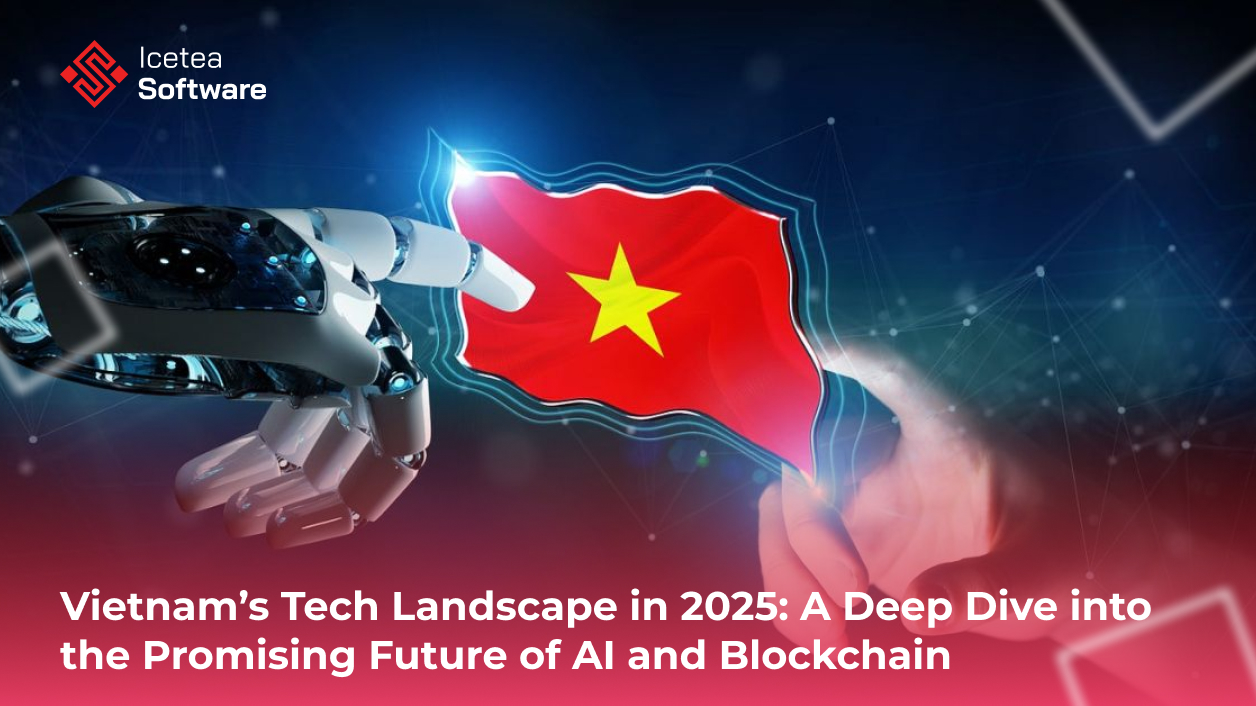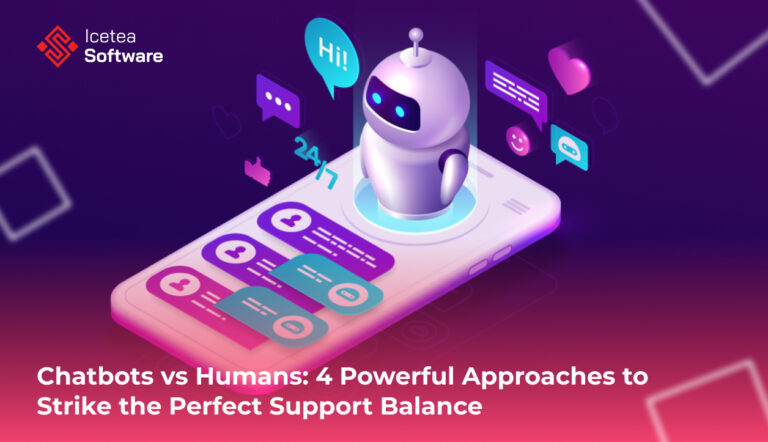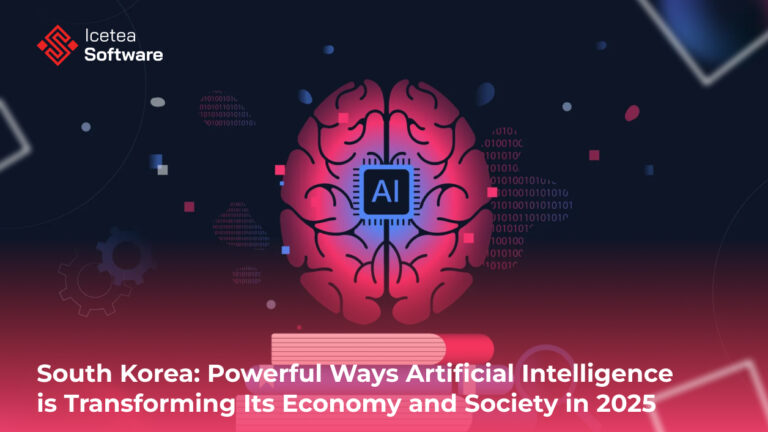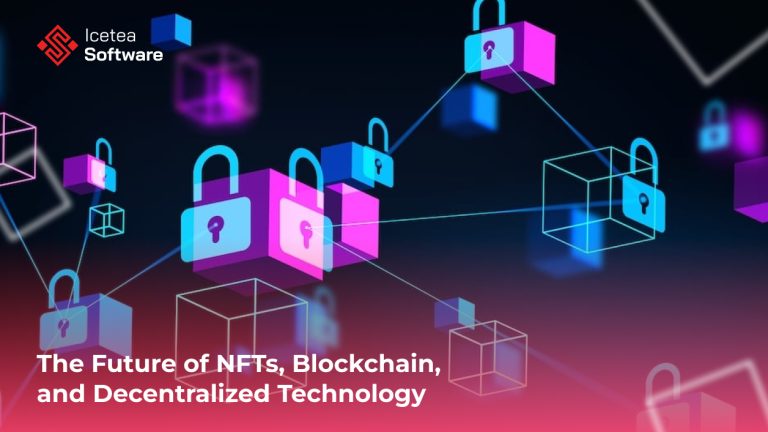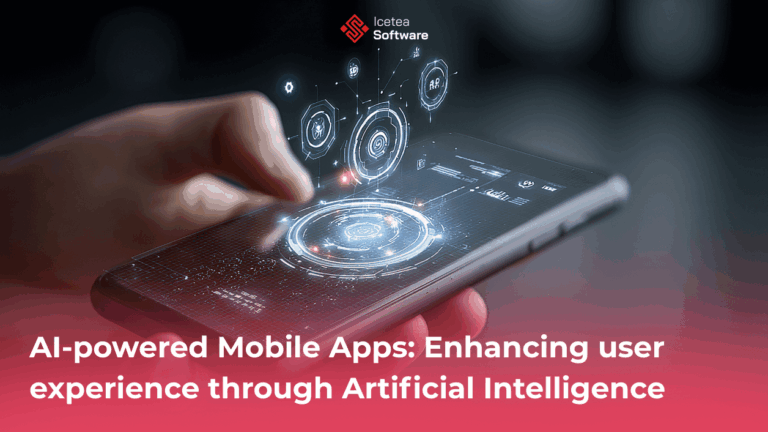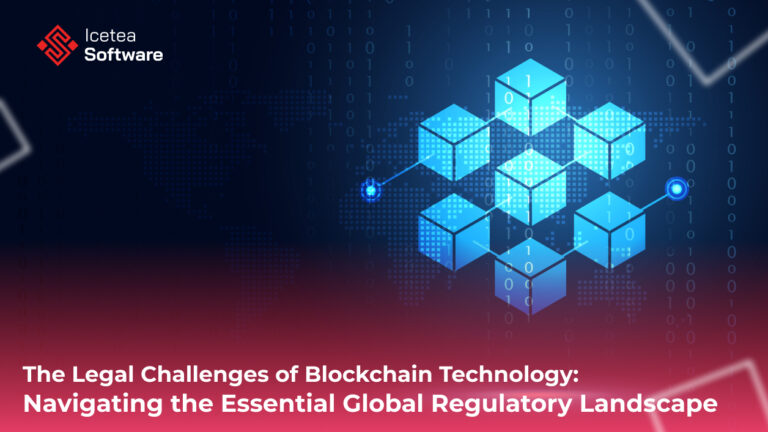Vietnam’s Tech Landscape in 2025: A Deep Dive into the Promising Future of AI and Blockchain
Vietnam is fast becoming one of Southeast Asia’s most dynamic technology hubs. With its youthful population, strategic government initiatives, and a rapidly maturing startup ecosystem, the country is riding a wave of digital transformation. As of 2025, the Vietnamese tech landscape is evolving dramatically, with two standout forces—Artificial Intelligence (AI) and Blockchain—reshaping industries, economies, and everyday life.
This blog explores Vietnam’s updated tech landscape in 2025, focusing on the contrast and convergence between Blockchain and AI, their sectoral impacts, the government’s approach, and the challenges that remain.
Vietnam’s Digital Transformation Journey
Vietnam’s transformation into a regional technology powerhouse didn’t happen overnight. It is the product of sustained efforts in education, infrastructure development, and regulatory evolution. The Vietnamese government, through its National Digital Transformation Program, has set ambitious goals for digitalization by 2025 and further into 2030.
Some of the foundational factors include:
- Education and Workforce: Over 50,000 IT graduates enter the workforce every year, many trained in AI, software engineering, cybersecurity, and blockchain development. Vietnamese universities have expanded partnerships with tech firms like Google, Microsoft, and Nvidia to align curricula with industry needs.
- Digital Infrastructure: Vietnam has invested heavily in its cloud infrastructure, 5G connectivity, and data centers. Tech zones like the Saigon Hi-Tech Park and Hoa Lac Hi-Tech Park provide fertile ground for innovation.
- Startup Ecosystem: Vietnam now hosts over 3,800 startups, with a growing number in deep-tech sectors like AI, Blockchain, and IoT. Ho Chi Minh City and Hanoi are key centers of innovation.
Artificial Intelligence: Driving Innovation Across Sectors
Strategic Investments and Collaborations
The Vietnamese government released its National Strategy on AI Development in 2021, targeting Vietnam to become a leading AI center in ASEAN by 2030. As of 2025, this strategy has seen concrete results:
- Nvidia and the Ministry of Planning and Investment partnered to set up an AI research center in Hanoi.
- VinAI, under Vingroup, has emerged as one of Southeast Asia’s most promising AI labs, publishing papers in top-tier journals and working with partners across Japan and the US.
- Vietnam’s collaboration with South Korea and Singapore on AI ethics and governance standards has positioned it as a responsible tech innovator.
Domestic tech firms like FPT have also made substantial investments. FPT commenced work on a $173 million AI center in southern Vietnam, focusing on research, software production, digital transformation support, and cybersecurity solutions.
Sectoral Applications and Startups
- Healthcare: AI is transforming diagnostics and medical imaging. VinBrain’s AI model for chest X-rays is used in over 100 hospitals nationwide. Telemedicine platforms, enhanced by AI triaging systems, are now common in rural and urban clinics.
- Agriculture: AI drones and smart sensors are helping farmers optimize yield. With Vietnam being a top exporter of rice and coffee, AI-based crop prediction and disease detection tools are critical.
- Finance: Fintech companies like MoMo and Timo use AI to personalize services, detect fraud, and automate customer support. Credit scoring models based on alternative data have broadened financial inclusion.
- Public Services: Ho Chi Minh City uses AI-based traffic management systems that analyze real-time data to reduce congestion. AI chatbots on government portals provide citizens with 24/7 service support.
The surge in AI startups, with private investments increasing eightfold from $10 million in 2023 to $80 million in 2024, underscores the sector’s vibrancy.
Regulatory Frameworks and Ethical Considerations
Vietnam’s AI sector is supported by evolving regulatory frameworks. The government is developing guidelines to ensure ethical AI development and deployment, focusing on data privacy, transparency, and accountability. These measures aim to foster public trust and encourage responsible innovation.
Blockchain: Building a Decentralized Future
National Strategy and Government Support
Unveiled in 2024, Vietnam’s National Blockchain Strategy outlines a roadmap to position the country as a regional blockchain leader by 2030. The strategy includes:
- Developing at least 20 blockchain brands with international competitiveness.
- Establishing three national-level blockchain R&D and testing centers.
- Supporting pilot projects in public administration, education, and logistics.
The Ministry of Science and Technology has actively promoted the formation of a legal sandbox to allow controlled experimentation of blockchain-based innovations, especially in fintech and health data systems.
The government plans to build a national blockchain network to improve transparency, security, and efficiency in government and business operations, fostering nationwide integration and interoperability.
Industry Adoption and Market Growth
Blockchain technology is being integrated into various sectors:
- Supply Chain & Logistics: Vietnam’s massive manufacturing and export sectors benefit from blockchain’s traceability features. Exporters use blockchain to ensure product authenticity, track shipments, and streamline cross-border trade documentation.
- Education: Major universities have started issuing diplomas via blockchain, ensuring certificate authenticity and combating fraudulent academic records.
- Banking and Fintech: Although cryptocurrencies are not legal tender in Vietnam, blockchain-based cross-border payment systems and DeFi (Decentralized Finance) pilots are gaining momentum. Local companies like KardiaChain and TomoChain are building scalable, interoperable blockchain platforms with global reach.
- Healthcare: Blockchain is used to store and share patient data securely across different hospitals and provinces. Combined with AI, this enables predictive analytics and better health interventions.
The blockchain market in Vietnam is projected to grow at a robust CAGR of 17.4% through 2029, reflecting strong industry and governmental support.
Regulatory Developments
Vietnam’s regulatory framework for crypto assets and blockchain has been in a developmental stage since 2017. In February 2024, under Decision No. 194/QD-TTg, the Ministry of Finance was assigned to draft a legal framework to either prohibit or regulate virtual assets and service providers by May 2025. In March 2025, Directive No. 05/CT-TTg directed the Ministry of Finance and the State Bank of Vietnam to propose a legal framework for managing and promoting the healthy and effective development of digital assets and currencies within March 2025. The Draft DTI Law, initiated in 2024, is expected to be the first law-level document to establish a binding regulatory framework for cryptocurrency and blockchain.
Synergy Between AI and Blockchain
While both AI and Blockchain are rising in parallel, the question arises: are they competitive technologies, or do they complement each other?
Differences
- Core Function: AI focuses on analysis and prediction. Blockchain focuses on recording and verifying.
- Centralization vs. Decentralization: AI systems are often centralized for performance, while blockchain thrives on decentralization.
- Use Cases: AI suits areas like image recognition, NLP, and behavior prediction. Blockchain fits better with transaction records, identity management, and trust verification.
Emerging Synergies
There’s growing interest in combining AI and blockchain to create more intelligent, trustworthy systems.
- AI for Blockchain: AI algorithms can detect fraud or anomalies in blockchain networks and optimize mining or consensus mechanisms.
- Blockchain for AI: Blockchain provides a secure way to store and verify AI training data, addressing concerns about data manipulation and bias.
Vietnamese startups are exploring these intersections. One example is a Hanoi-based company working on a decentralized medical data sharing platform using blockchain, with AI models predicting disease outbreaks based on anonymized, verifiable data.
Challenges and the Road Ahead
In 2025, foreign direct investment (FDI) in Vietnam’s tech sector surpassed $5 billion, with AI and blockchain being primary areas of interest.
- AI Funding: Investments into Vietnamese AI startups grew from $80 million in 2024 to over $130 million in Q1 2025 alone. Major investors include GGV Capital, Sequoia, and regional VCs from Singapore and Japan.
- Blockchain Investment: Despite regulatory uncertainties, blockchain ventures raised $400 million between 2023 and 2025, led by seed funding rounds in logistics and healthcare use cases.
Vietnam’s stock exchange is also exploring the use of blockchain for clearing and settlement systems, with pilot projects underway in partnership with the Korea Exchange (KRX).
The Road Ahead: What’s Next?
As Vietnam looks beyond 2025, several developments could shape the next phase of its tech evolution:
- AI Governance: Vietnam is likely to become one of the first ASEAN nations to pass a dedicated AI law.
- Blockchain Mainstreaming: Broader deployment of blockchain in public services (e.g., land registry, digital ID) will increase trust and efficiency.
- Green Tech Integration: The government is encouraging tech that supports sustainability. Both AI and blockchain are being explored for renewable energy tracking, carbon credit systems, and smart energy grids.
- Global Collaboration: Vietnam is part of several regional forums discussing ethical AI, crypto standards, and cybersecurity. Participation in these bodies enhances the country’s global influence.
Final Thoughts
Vietnam’s tech landscape in 2025 is marked by rapid advancements and a clear vision for the future. The country’s proactive approach to embracing AI and blockchain technologies, supported by government initiatives and private sector investments, sets the stage for continued growth and innovation. By navigating challenges and leveraging opportunities, Vietnam is poised to become a significant player in the global technology arena.
————————–
𝗜𝗰𝗲𝘁𝗲𝗮 𝗦𝗼𝗳𝘁𝘄𝗮𝗿𝗲 – Cutting Edge Technologies!
Website: iceteasoftware.com
LinkedIn: linkedin.com/company/iceteasoftware
Facebook: Icetea Software
